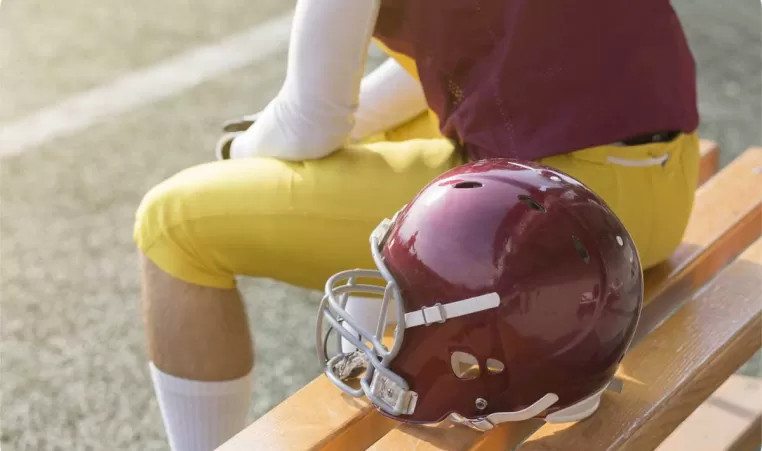Concussions

By: Susan Hickey
Fall is here. Time for back to school, time to watch the leaves change, and time to attend high school football games. High school sports are a much-loved tradition in our area. However, with the joy of a touchdown pass come the risks associated with injury. One of the more devastating injuries can result from head trauma, also known as a concussion. Recent years have provided science with more information about how a seemingly mild incident can in fact have longer-lasting consequences than once realized.
Prevention of concussions is very important. Proper-fitting helmets are one key piece of defense. However, even the best helmet cannot always prevent a jarring injury to the head. Sometimes it is unclear if a concussion has been sustained during activity, because loss of consciousness is not required for concussion to occur. The following symptoms should be watched for to help determine if a child is suffering the effects of a brain injury:
-
Headache or a feeling of pressure in the head
-
Nausea or vomiting
-
Balance problems or dizziness
-
Double or blurry vision
-
Sensitivity to light or noise
-
Feeling sluggish or dazed
-
Difficulty paying attention
-
Memory problems
-
Confusion
-
Slowness in understanding and responding to others
-
Sleeping problems
-
Mood changes
-
Changes in behavior
-
Changes in personality
Medical attention should be obtained if these symptoms are noticed. A physician can help evaluate the severity of the injury and determine if and what treatment is necessary.
Concussion recovery takes time and requires rest for healing. This rest should be both physical and cognitive. School-aged children may need some changes to their schedule for a couple of days if they experience headaches or other symptoms when trying to do their schoolwork. Make sure your child’s school is aware of the situation so they can work with you on meeting your child’s needs.
Additionally, it is crucial that kids don’t return to play until symptoms have resolved entirely. The risk of repeated concussion is higher when the first concussion is not fully healed, and suffering multiple concussions can have mounting effects over time. Avoiding activities such as biking and skateboarding, in addition to the sport where the injury was originally sustained, is important.
YMCA organizations are among the many that require coaches participate in concussion training on an annual basis to help keep kids safe. However, it is important for parents to be aware of the signs and symptoms to help their child be cared for appropriately if they experience a head injury.
http://www.stlouischildrens.org/articles/wellness/concussion-fact-sheet
Susan Hickey is a part-time physical therapist and SAHM of 3. Susan and her family are Coffman YMCA members.
